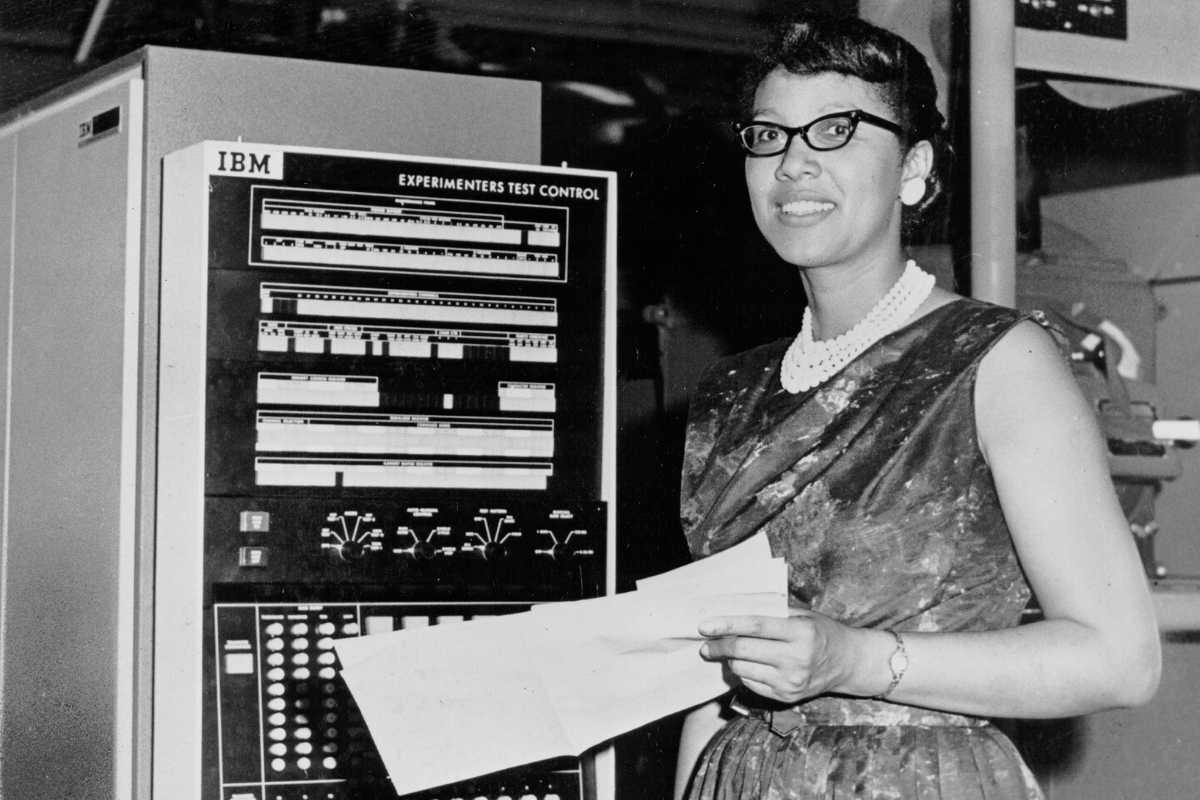History serves as an important way of recording the past. By being able to recognize important figures, people can understand current circumstances and pave the way for a better future. History, however, hasn’t been reflective of all voices. For centuries, Black voices have been erased from the historical narrative, as storytelling has been told by primarily white voices and predominantly celebrates white figures.
It’s imperative we recognize this, and make substantial changes to correct how American history is being told. One way is recalling Black figures who have made a notable impact in every field. In technology, there have been many Black people, particularly women, who have made a tremendous impact on the technology industry.
As Adell Cothorne, professional development schools coordinator for the Loyola University, Maryland School of Education wrote for the Baltimore Sun,
“We, as educators, parents and community members have an obligation to recognize powerful African American figures like mathematicians Katherine Johnson, Dorothy Vaughan, and Mary Jackson in everyday conversations — because these aren’t strictly black heroes, they’re American heroes.”
These are names that must be recognized and remembered. Here we’ll take the moment to reflect on and learn about five amazing Black women in history who have been pioneers in the field of technology.
Melba Roy Mouton

Melba Roy heads the group of NASA mathematicians, known as “computers,” who track the Echo satellites.
In the 1960s, Melba Roy Mouton served as Assistant Chief of Research Programs at NASA’s Trajectory and Geodynamics Division and led a group of mathematicians in the agency that were known as “computers.”
After receiving a master’s degree in mathematics from Howard University, Mouton began to work at NASA in 1959 where she worked as the head mathematician for Echo Satellites 1 and 2. In addition to her work on the satellites, she devoted some time to seminars on “A Programming Language” and wrote an article for NASA regarding computer code.
Mouton worked her way up to become Head Computer Programmer and after that, Program Production Section Chief at Goddard Space Flight Center. While at NASA, Mouton was awarded the Apollo Achievement Award and an Exceptional Performance Award.
Marian Croak
When it comes to modern history, Marian Croak has been a leading figure in the field of technology. Croak developed Voice over Internet Protocol (VoIP) and is the current Vice President of Engineering at Google.
Croak began her career in 1982 when she worked at AT&T Bell Laboratories. Some of her first positions involved work with voice and data communication, which contributed to the advancement of phone features such as text messaging and calling.
Croak eventually went on to hold the position of Senior Vice President of Applications and Services Infrastructure where she oversaw the work of over 2,000 engineers and computer scientists. In 2014, she left AT&T Labs and began to work at Google in her current position.
Gladys West

Dr. Gladys West is inducted into the Air Force Space and Missile Pioneers Hall of Fame during a ceremony in her honor at the Pentagon in Washington, D.C., Dec. 6, 2018.
Gladys West, a computer programmer, and project manager for the Naval Surface Warfare Center created the foundation for GPS technology.
From a young age, West dedicated a lot of time and attention to her studies. She graduated at the top of her class in high school and earned a degree in mathematics from Virginia State University. Shortly after graduation, she pursued a career in teaching but returned to university after two years so she could seek further career advancement and education.
By 1965, West was working at the Naval Surface Warfare Center, where she worked in data collection, processing, and computer programming. Though West made significant contributions to technology, not many people knew of her work until after she attended an alumni event.
Marsha Rea Williams
Marsha Rhea Williams became the first African American woman to receive a doctorate in computer science, and one of the first African Americans to teach in the department of engineering and computer science at the University of Mississippi in Oxford.
Williams began her secondary education at Beloit College where she obtained a bachelor’s degree in physics in 1969. Then, Williams obtained two master’s degrees — one in physics and one in systems and information science — before eventually obtaining her doctorate in computer science in 1982, where she wrote a dissertation about the beginnings of user experience in querying databases.
In addition to her career in academia, Williams has also been a huge advocate for promoting minority representation in STEM careers.
Katherine Johnson

Katherine Johnson, NASA employée, mathematician and physicist, in 1966
Katherine Johnson was a mathematician who worked as a “computer” at NASA. Her calculations allowed for astronaut John Glenn to successfully orbit around the Earth in 1962. Another central figure who worked alongside her during the computations was Dorothy Vaughn, NASA’s first African American manager.
Katherine Johnson began working in the field of aeronautics in 1952. She was inquisitive and bold, and due to her impressive skills, was quickly able to rise in rank. Though electronic computers became more prominent by 1969, Johnson was still looked to as a valuable and important figure. She worked on calculations for Apollo 11 before it took off, and helped in making sure that Apollo 13 had the right navigation systems to return from its mission safely after an oxygen tank failure.
Recognizing Black women in history is important, especially in STEM fields. Not only may it inspire the next generation of Black women in technology, but it is rightfully giving back their voice in history. Let’s make history right by honoring these women who have revolutionized technology to transform it into what we know today.

Sophia Acevedo
Sophia Acevedo is a journalist based in Southern California. She is a 2020 graduate from California State University, Fullerton, and a proud Daily Titan alum.





